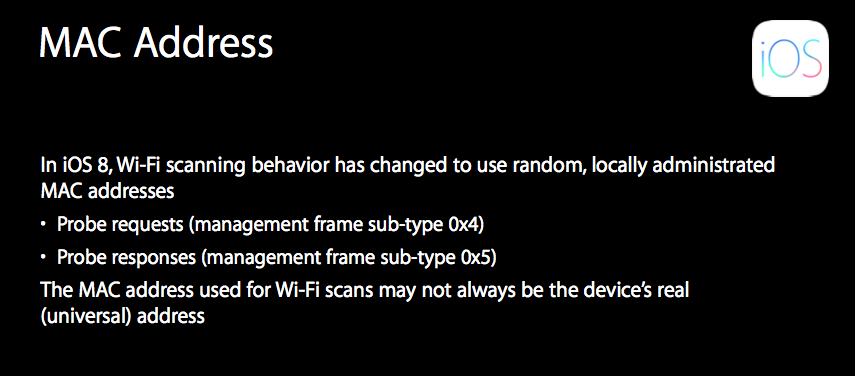Before iOS 8, when an iPhone scans for nearby Wi-Fi, it transmits its unique MAC address as part of the search. Watching for MAC addresses is one of the techniques that is used to locate devices in retail settings.
A new change in iOS 8 makes it so that when a phone is scanning for nearby Wi-Fi access points, it will use a random MAC address rather than announcing the device's permanent address.
This is a huge win from a privacy perspective, since it is no longer possible to passively track devices by their MAC addresses as they wander around a store. Most articles are touting this as Apple "striking an unexpected blow against location tracking," or "stopping marketers from spying on you."
However there is another explanation for this change, and one that makes more sense from a business perspective.
By disabling the ability for third-party companies to track devices using the MAC address, this ensures the only way to track devices indoors is by using iBeacon technology.
So while this is a positive change from a privacy perspective, really it's just a way to ensure mobile marketing firms are required to use Apple's iBeacon technology and are further locked into Apple's ecosystem.

